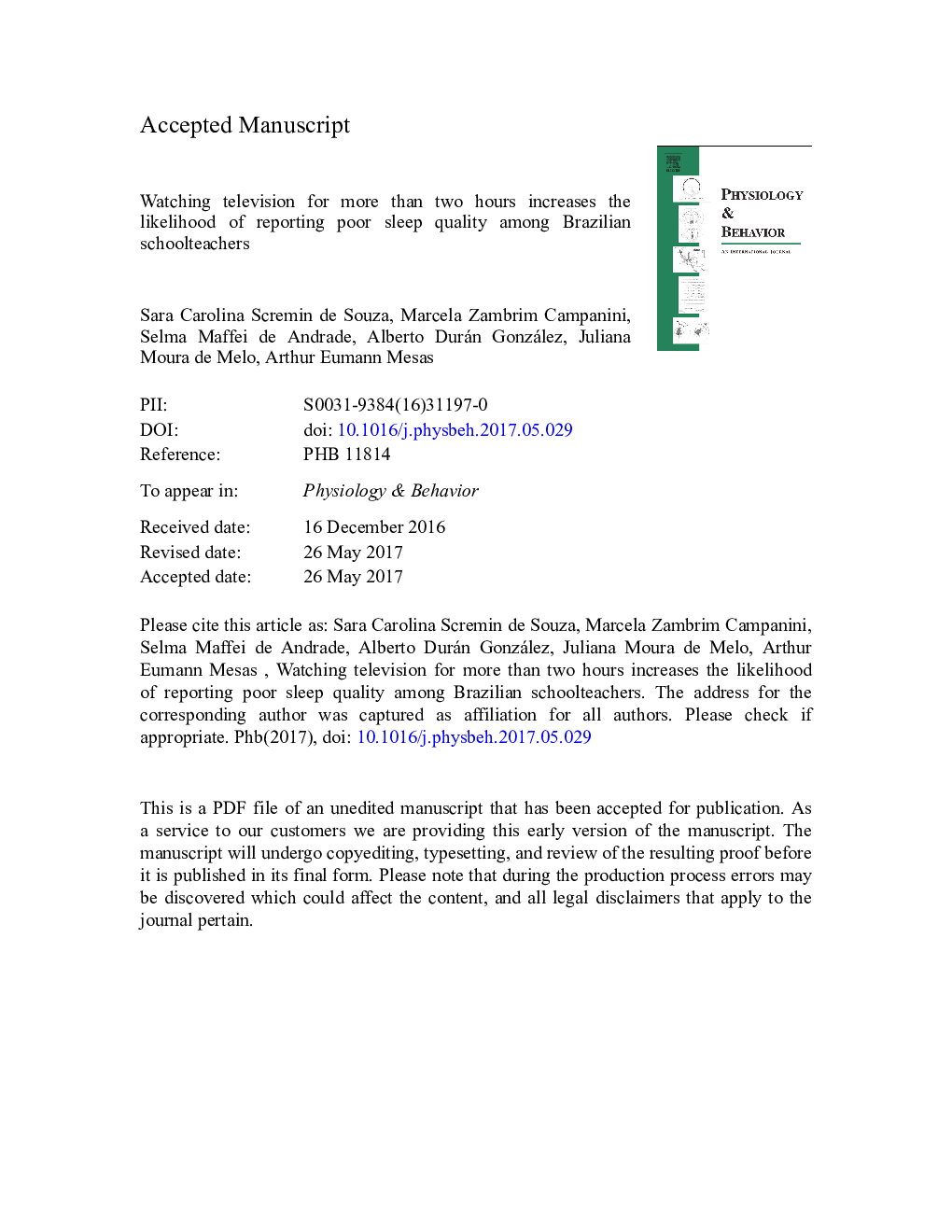| Article ID | Journal | Published Year | Pages | File Type |
|---|---|---|---|---|
| 5593630 | Physiology & Behavior | 2017 | 23 Pages |
Abstract
Although time spent watching television and sleep problems have increased in the last few decades, it is unclear whether these conditions are associated in working adults after controlling for lifestyle, job characteristics and other individual aspects. The present study analyzed the association between time spent watching television and sleep quality among teachers from public schools in Londrina, Brazil. In this cross-sectional study, information from the Pittsburgh Sleep Quality Index (PSQI) and about time spent watching television was obtained during personal interviews. Logistic regression models adjusted by the main confounders (sociodemographic, occupational and lifestyle variables) were used in the analyses. Among the 959 studied teachers (68.2% women, median age: 42 years), teachers who watched > 120 min/day had a higher likelihood of reporting poor sleep quality (PSQI > 5) (odds ratio = 1.41; 95% confidence interval = 1.01; 1.98) compared with those who watched television for up to 60 min/day, regardless of gender, age, work hours, leisure time physical activity and other lifestyle variables. This association did not remain significant after the adjustment for health conditions, i.e., obesity, anxiety, depression and chronic pain, which may act as confounding variables in the relationship between watching television and poor sleep quality. Watching television for > 120 min/day was independently associated with poorer sleep quality, which should be considered in the prevention and treatment of sleep disturbances among working population.
Related Topics
Life Sciences
Biochemistry, Genetics and Molecular Biology
Physiology
Authors
Sara Carolina Scremin de Souza, Marcela Zambrim Campanini, Selma Maffei de Andrade, Alberto Durán González, Juliana Moura de Melo, Arthur Eumann Mesas,
